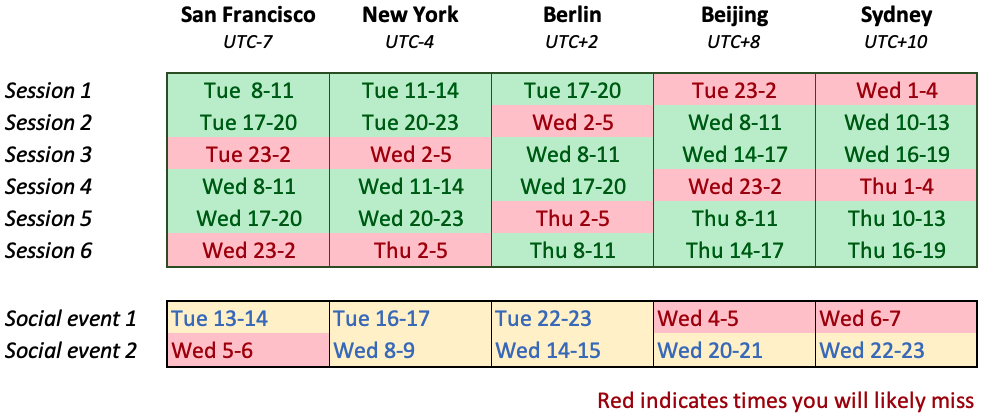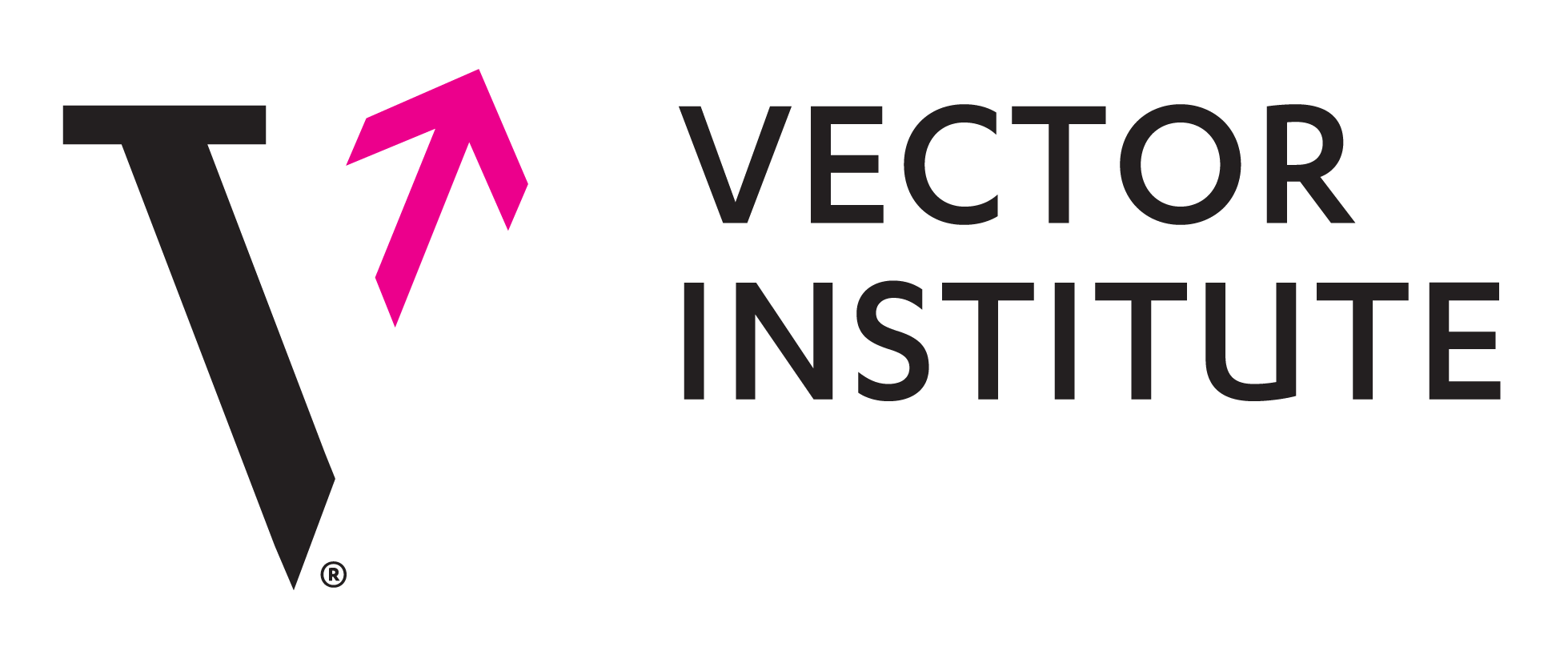Virtual UAI 2020!
This page serves as a portal to the online conference. Here you will find all schedules and links to talks, tutorials, videos etc.
Before the conference, all registered participants will be given login-credentials to access conference Zoom meetings and recorded talks. Click here to register.
UAI 2020 is completed
We thank everyone for making this virtual UAI possible. See you at another UAI!
Recordings of all talks can be found here.
Welcome by the program chairs Jonas Peters and David Sontag

Welcome to the first virtual UAI! Show/Hide.
This conference is virtual because of COVID-19 and we hope that all of you and your families are safe.
UAI 2020 consists of six sessions each of which has three simultaneous tracks. While the videos of talks are available at all times, discussions, Q&As, and posters will be live events. We hope that this will help make the virtual UAI feel more like a single, coherent, academically stimulating event. Each session will have time allocated for (optional) breakout rooms. The online format of UAI 2020 differs from the formats used in earlier ML virtual conferences such as ICLR and ICML. We believe that at the current state, exploration is important for identifying which format works best for the community.
We regard the exchange of scientific ideas as the premier goal of this conference. To help shape an atmosphere that supports lively discussions, we would welcome it if you could put on your camera during the talks (Zoom allows for changing the background). At all times, the chat can be used for posting questions, comments, and pointers. Questions can also be sent directly to the session chair or can be asked by video during the Q&A by 'raising the hand' in Zoom. No Zoom activity will be recorded except for the tutorials.
As is the trend in the rest of the community, the number of submissions to UAI have continued to increase over previous years. This year we had 515 submissions, of which the program committee accepted 142. This year had a particularly large number of accepted papers in causality, bandits, and reinforcement learning.
UAI 2020 is virtual to decrease the risk of further spreading COVID-19. As a side effect, it is more easily accessible for people from institutions with limited funding. A virtual conference saves CO2, too. Using a rough estimate (based on tinyurl.com/qsmenaj, tinyurl.com/ybm3y5z3, and tinyurl.com/y4s5bd7l) each person should not emit more than 1.8t CO2 per year (until 2050) to give us a chance to reach the 1.5 degrees Celsius goal. The CO2 emissions of each passenger on a return flight from Europe to Toronto amount to roughly 1.5 times this yearly personal budget. Non-virtual personal academic exchange is important, but we need to make the academic world more sustainable. We hope that together with the other virtual conferences this year, UAI 2020 can generate ideas for how to make this possible.
Many people have contributed to UAI 2020. We thank the UAI board, the general chairs Ryan Adams and Vibhav Gogate, local chair Roger Grosse, publication chair Fredrik Johannson, sponsorship chair David Duvenaud, workflow chair and virtual UAI webmaster Nikolaj Thams, and SlidesLive production managers Vuong Do Bao and Jan Fischer for their hard work to make UAI 2020 possible. We additionally thank the sponsors, Baidu, Borealis AI, Google, layer6, NEXT Canada, and the Vector Institute, for their financial support and commitment to UAI. We thank all reviewers and area chairs for their work to help shape an exciting scientific program, and particularly for their dedication to the review process despite the hardships that many were under due to the COVID-19 crisis. Finally, we thank all authors, discussants, and tutorial speakers John Duchi, Doina Precup, and Markus Reichstein for their presentations that we are eagerly looking forward to.
We ask all participants to take a look at the UAI 2020 Code of Conduct, and to work together to keep UAI free from harassment, bullying, discrimination, and retaliation.
We gave our best to prepare a conference that will be a good experience for everyone involved. We expect, however, that some things will not go as planned and others might work differently than expected (after all, this conference is about "uncertainty"!). If this happens, please try to take it with a pinch of humor.
Have a great UAI 2020!
David Sontag and Jonas Peters
UAI 2020 Program Chairs
uai2020programchairs@gmail.com
Tutorials, Aug 3rd, 2020
On Monday Aug 3rd we will be having three tutorials. Tutorials will be recorded (the only Zoom activity being recorded).
Click on a link below to join the tutorial via Zoom:
| |
|
Machine learning for Earth System Science - Overview and case studies. Markus Reichstein. More details. [Recording]. |
| |
|
Off-policy reinforcement learning and its applications. Doina Precup. More details. [Recording]. |
| |
|
An Overview of Distributionally Robust Optimization. John Duchi. More details. [Recording]. |
Main Conference, Aug 4th-6th, 2020
Social Acitivities
| |
|
Social Activity 1 |
| |
|
Social Activity 2 |
Conference structure
Each day of the conference will contain two sessions, with every session is split into 3 tracks. Each track is conducted via Zoom where 8 pre-recorded talks are shown with live discussion and poster session. See this page for more details on the main conference sessions.

Practical info
UAI 2020 will be using two online platforms:
- All sessions will be held live via Zoom. Here talks will be shown, discussions and poster sessions conducted.
- All paper-talks will be pre-recorded using SlidesLive. The talks will be played in the main sessions as well as being available online for participants.
Sponsors





Borealis AI: Poster session in Sessions 1 and 2
Next AI: Poster session in Sessions 4 and 5
Vector Institute: Poster session in Sessions 1 and 4
Layer6: Poster session in Sessions 6
#UAI2020 - Curated tweets by nikolajthams